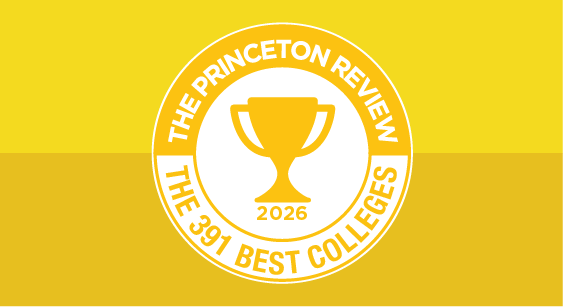Biomedical Science
Overview
Some people love to say, “At least you have your health.” And biomedical science majors want to make sure it stays that way. Biomedical science combines the fields of biology and medicine in order to focus on the health of both animals and humans. As a biomedical science major, you’ll study biochemical and physiological functions, anatomical and histological structures, epidemiology, and pharmacology. You’ll learn how to both maintain and promote health in humans and animals with knowledge in the basics of nutrition, diseases, and immunology. Delve into fields such as cell and molecular biology, parasitology, and toxicology, and emerge with hands-on experience through laboratory work and research.Majors in biomedical science are poised to make valuable contributions to the fields of both biology and medicine—and many move on to make discoveries in the field of biology that have important effects in the medical world. While there are copious careers available to students who obtain a Bachelor of Science degree, many students choose to pursue additional education in professional or graduate school.
As a biomedical science major, you may go on to make advancements in the study of cancer or AIDS, become involved in the research of infectious diseases, or propel science toward improving the human condition in any of hundreds of other ways. Get set to make a scientifically sound difference in the health of living beings.
SAMPLE CURRICULUM
Anatomy
Animal Science
Biology of Cell Tissues
Biomedical Aspects of Human Nutrition
Clinical Microbiology
Comparative Mammalian Neurology
Endocrine Physiology
Genetics
Organic Chemistry
Statistical Methods
Virology
HIGH SCHOOl PREPARATION
Bulk up on as many science and math courses as you can handle: biology, chemistry, physics, calculus, and trigonometry. The more you can learn now, the better. Scientists must also be good communicators, so be sure to take classes such as English, history, and languages that will help polish your reading and writing skills. And of course, you should take advantage of any science courses or clubs that offer laboratory experience.
GRADUATE PROGRAMS & CAREERS
Explore Colleges For You
Connect with our featured colleges to find schools that both match your interests and are looking for students like you.
Top Schools for Game Design
Ready to create the next great app? Launch your gaming career at one of these top 50 programs.
Best 391 Colleges
170,000 students rate everything from their professors to their campus social scene.
Get Started on Athletic Scholarships & Recruiting!
Join athletes who were discovered, recruited & often received scholarships after connecting with NCSA's 42,000 strong network of coaches.



